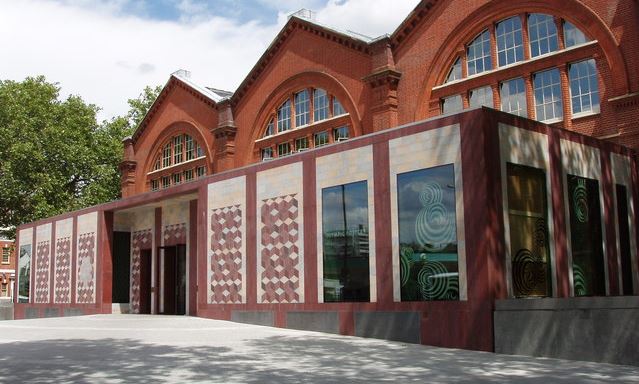Part One:
We had listened with excitement to our friend’s description of
his travels in the tribal regions of Kinnaur and Spiti, in the North Indian
State of Himachal Pradesh. Bordering Tibet, these areas had only recently
been opened to foreigners.
The following May we set off from Goa, where we spend our winters, and
headed for Shimla, the former summer capital of the British Raj. It was
our second visit to this bit of old England located on top of and spilling
over both sides of a steep ridge in the foothills of the Himalayas. Even
a scaled down copy of London’s Gaiety Theatre sits on the Mall,
the town’s high street from where on a clear day you can see high
peaks while strolling past and poking into quaint old shops, including
Maria Brother’s Antiquarian Bookshop, where you never know what
treasures you’ll find.
We inquired about Kinnaur and Spiti at the tourist office, housed in
a Tudor-style building on the Mall. They tried to be helpful but there
wasn’t much official information to be had about the region. That
was ten years ago. The bureaucratic hassles involved in obtaining permission
to enter this region at that time were so formidable that few travellers
managed it, and of those who did, most received permission to stay for
only a week and others were even required to take a police escort with
them. Surprisingly, the officer in charge of a small district headquarters
granted us a two-month unrestricted permit from simply because we had
struck a friendly note with him. Such is the way things happen in India.
In the past few years entry restrictions have been relaxed and we have
been back many times.
The district of Kinnaur is largely Hindu, but being far from the centres
of mainstream Hinduism, it has retained an archaic character: oracles
go into trances and the gods of the villages speak through them. There
are no Brahmins here to act as priests; Buddhist lamas conduct the major
household rituals for the Hindus, those concerned with birth, marriage
and death, a practice unheard of elsewhere in Hindu India. Spiti though,
is Lamaistic Buddhist as is Tibet, but the religion is more archaic here,
retaining ancient ways, magical practices and archaic rituals that long
ago disappeared from Tibet.
Over the years, we’ve spent many months exploring Kinnaur and
Spiti, living in small villages, walking the trails between remote villages
and into the high, uninhabited mountains and attending festivals at gompas
(monasteries)—colourful events when the lamas don gorgeous silken
brocade robes, masks and headdresses and perform graceful dances to the
sounds of kettle drums and unbelievably long, curved brass horns. Once
we pitched our tent on top of a flat-roofed mud house and watched the
lamas practice their graceful steps and leaps for a week before the festival
began. The dances are dramatizations of stories from Tibetan Buddhist
myths, all very well known to the lively and appreciative audience of
villagers, decked out in their finest and most exotic apparel; they come
from near and far to watch these shows. We sat among them and enjoyed
being among these gentle and colourful, full-of-life people.
At a festival at Ki Gompa, which is built around the small, rubbly cone
of an extinct volcano, when the dances were over, the audience got up
and moved to the hillside behind the monastery. There they formed long,
snaking lines and prostrated themselves to make a living carpet for the
lamas to walk on. Talk about devotion! The people consider their lamas
to be literally living gods.
Ki village is high above the Spiti Valley, north of Kaza, Spiti’s
main town. The bazaar has the timeless feel of an ancient entrepôt.
It is a meeting place of people from all over the Himalayas and the Indian
plains who come here to trade donkeys, yaks, rugs, turquoise and coral,
seed pearls and peas… (and Spiti is renowned for its fine riding
horses able to navigate the narrowest of mountain trails, and also for
its wily horse traders).
The town is dotted with small squares built around gleaming white, highly
embellished chortens or stupas, the reliquary mounds found everywhere
in the Buddhist Himalayas, and shaded by ancient gnarled poplars. And
surrounding the town are stark, boldly hued mountains. In this high-altitude,
desert-like region all cultivation must be carried on by extensive and
ingenious irrigation schemes, complex networks of channels that bring
water to the fields from glaciers in the mountains high above. The emerald
fields of barley and peas are like jewels set into this rugged, rocky
landscape. Massive mud-brick houses and monasteries washed gleaming white
with distinctive black and ochre trim stand out against the green of the
fields and the deep blue of the sky.
More in our next letter about Spiti’s distinctive style of architecture—it’s
amazing what you can do with mud! And, what happened when it rained in
this place where it never rains!
Martin and Carol Noval have been living in India for more than twenty
years and organize and lead several special cultural tours and treks a
year for small groups. They’ll be leading road trips and treks in
Spiti next summer (2003). If you would like to get in touch, email them
at tripsintoindia@usa.net and check their website www.tripsintoindia.com
 Teddy Bear Centenary in London: the centenary of the teddy bear is being celebrated with a major exhibition at London’s Museum of Childhood, Bethnal Green (March 29 – December 31).
Teddy Bear Centenary in London: the centenary of the teddy bear is being celebrated with a major exhibition at London’s Museum of Childhood, Bethnal Green (March 29 – December 31).